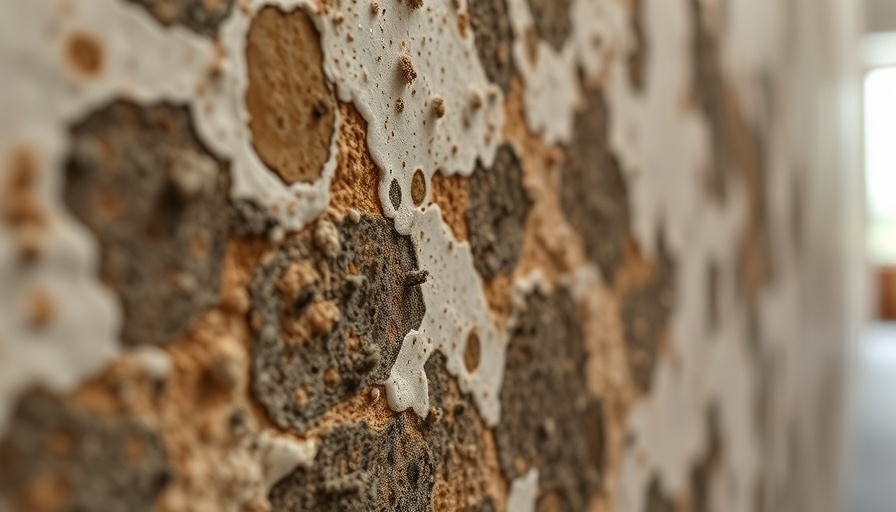
Portland Residents on Alert: Understanding the Symptoms of Mold Exposure
As Portland residents, we are fortunate to live in a city surrounded by nature and beauty. However, this lush environment can sometimes come with hidden dangers, particularly when it comes to mold exposure. In this comprehensive guide, we will explore the critical symptoms of mold exposure, helping you recognize when it’s time to take action to protect your health and well-being.
Understanding Mold: What It Is and Why It Matters
Mold is a type of fungus that plays a significant role in breaking down organic matter in nature. It thrives in warm, damp environments and can quickly proliferate within homes, especially in areas that are prone to moisture like basements, kitchens, and bathrooms. Mold spores are virtually everywhere in the environment, and while most types pose little risk to human health, some can produce allergens, irritants, and mycotoxins, leading to serious health concerns.
Portland’s climate, characterized by its rainy winters and high humidity levels, creates an ideal breeding ground for mold growth. Understanding the different types of mold and the conditions that encourage their growth can equip you with the knowledge you need to prevent mold infestations and mitigate their impact on your health. Being aware of mold’s reproductive cycle can help residents act quickly—harsh weather and the resulting dampness can lead to rapid mold growth that may result in severe health issues if left unchecked.
Recognize the Common Symptoms of Mold Exposure
Recognizing the symptoms of mold exposure is crucial for maintaining your health. Many individuals exhibit different reactions depending on their sensitivity, the type of mold, and the extent of exposure. Some of the most common symptoms include:
- Respiratory Issues: This includes symptoms like coughing, wheezing, and difficulty breathing, with chronic exposure potentially exacerbating pre-existing conditions.
- Skin Irritation: Mold can trigger allergic reactions resulting in rashes and hives, especially in individuals with sensitive skin.
- Fatigue: Chronic exposure can cause fatigue and general malaise.
How to Identify Mold in Your Home
Identifying mold growth can sometimes be straightforward. Mold often appears as discolored patches on walls, ceilings, or anywhere there is lingering moisture. In some instances, a musty odor may indicate its presence even if mold is not immediately visible. Residents should be vigilant in their inspections, checking areas that may harbor mold spores but are less likely to be examined regularly, such as behind appliances and under sinks. Moisture accumulation in these hidden locales can become a breeding ground for mold.
Understanding the Serious Health Risks From Mold
Mold is more than just an unsightly problem—it poses serious health risks that can endanger your family’s well-being. Prolonged exposure can lead to:
- Allergic Reactions: Symptoms can include sneezing, runny nose, and skin rashes, and may lead to chronic issues for sensitive individuals.
- Toxic Reactions: Some molds produce mycotoxins, which may cause neurological issues, headaches, fatigue, and cognitive impairments, particularly affecting children and those with compromised immune systems.
- Infections: Rarely, mold can cause fungal infections that can be life-threatening for immunocompromised individuals.
Steps to Take If You Suspect Mold
If you suspect mold is present in your home, it’s essential to act quickly. Consider hiring professional mold removal services to perform a thorough inspection and remediation. Effective mold removal includes identifying hidden mold growth, addressing the source of moisture, and ensuring proper ventilation in your home. A professional can provide peace of mind, knowing that mold is being handled correctly and safely.
Future Considerations in Health and Safety
Understanding the health impacts of mold exposure is increasingly vital for Portland residents. As climate change continues to affect weather patterns, we may see more humid conditions that can foster mold growth. Being proactive about mold prevention and armed with knowledge of its symptoms will enable families to safeguard their health in the years to come.
In conclusion, being informed about mold exposure symptoms and risks is crucial for Portland homeowners, renters, and landlords alike. Stay vigilant in inspecting your living spaces, keep moisture control measures in check, and prioritize health and safety in your home.
Call to Action: If you suspect mold exposure or notice any symptoms, consult a health professional and consider a thorough mold inspection for your property to protect your health and home.
 Add Row
Add Row  Add
Add 




 Add Row
Add Row  Add
Add 

Write A Comment